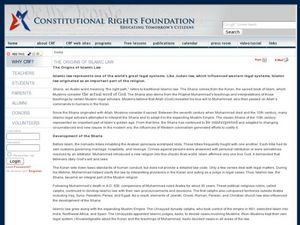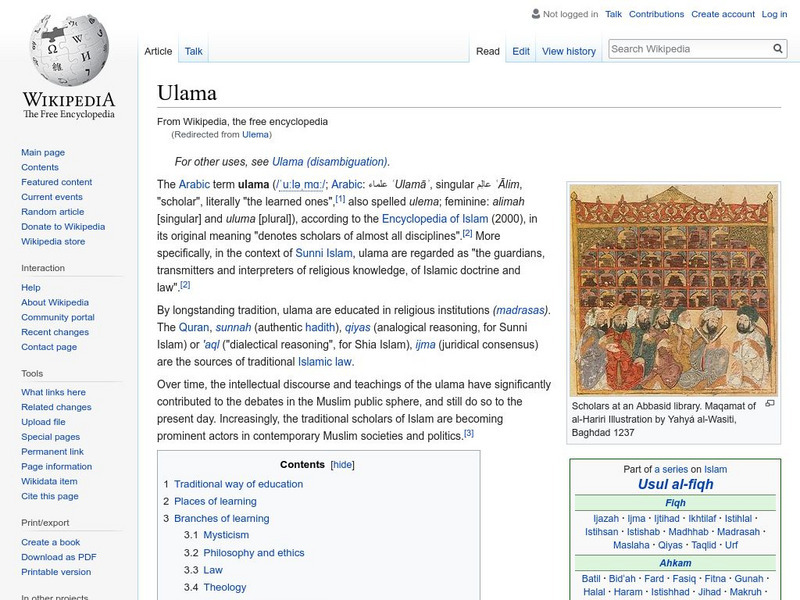Curated OER
Islamic Civilization
Use this simple graphic organizer to summarize the key points of Islamic civilization, including laws and dogma, the status of women and slaves, motivations for converts, and the re-centering of the Islamic people.
Curated OER
The Origins of Islamic Law
Ninth graders examine Islamic Law. In this Law lesson, 9th graders read documents on the origins of Islamic Law. Students create answers to questions based on Islamic Law.
PBS
Pbs Online News Hour Extra: Sharia: Critical Analysis
From the PBS NewsHour with Jim Lehrer a lesson that asks students to identify fundamental Islamic beliefs and law using a 2003 case study from Nigeria. Also provides the opportunity to compare and contrast the sharia with the American...
University of California
Ucla: Manas: History and Politics of the Mughal Empire
This article surveys the Mughal Empire of India (1526-1857) and traces its origins, names its rulers, and provides historical illustrations and a map.
Other
The Islamic Supreme Council of America: Understanding Islamic Law
The multi-faceted areas of Islamic law are discussed. The article is divided into sections, the first is a discussion of invoking divine principle and human reason. The next is the Islamist's understanding of Shari'ah otherwise known as...
Constitutional Rights Foundation
Constitutional Rights Foundation: The Origins of Islamic Law
Learn how Islamic law developed over time. The development of the sharia, or traditional Islamic law is explored as nomadic tribes began to progress into a more stabilized Muslim Empire. Family law and criminal law is discussed because...
Wikimedia
Wikipedia: Ulama
An overview of the Ulama is found in this encyclopedia article. Read about who they are and what their roles are. The article also discusses their loss of influence in the second half of the 20th century







